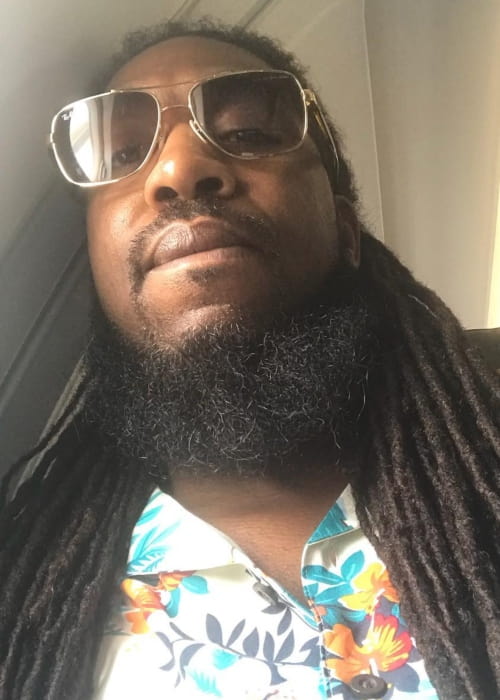

Just for them to have the opportunity to snatch up anybody in Atlanta and want me-that’s respect. I’ve been talking to Baby, Slim and Wayne. Was there any truth to the rumors of you potentially signing with Cash Money Records? There’s guys on major labels right now that aren’t doing what I’m doing. What I’m doing right now is setting myself up for a good position. But I’m not trippin’ off going back to a major right now. After that, don’t call me no more, I might not wanna talk. If we get some good videos under our belts, man, we might go gold with this album. But I’m about to shoot a video for “Hey Mama”. The only thing I don’t get being independent is videos.


The indie game is the way to be right now. We was still eating good being independent. How has the transition from being a major label artist back to being independent been for you? With drama abound, tracked down Pastor Troy to discuss his infatuation with the former Iraqi dictator, the fallout that ensued and rumors he’s signing with Cash Money Records. The controversial name drew protest from distributors and retail stores, forcing Troy to change it altogether. The LP, however, almost never saw the light of day due to its original title of Saddam Hussein. Troy’s latest, Tool Muziq, was released this week through his new company, Money and Power. With his contractual obligations fulfilled, the Leader of the Wicked Church subsequently returned to his underground roots and dropped three more albums independently. Three albums and three years later, the Southern general only scored one crossover song, the Timbaland-produced “Are We Cuttin’” off 2002’s Universal Soldier. After two more notable indie projects, Troy landed a three-album deal with Universal Records in 2001. The album, which introduced a hybrid of crunk meets gangsta rap, birthed a loyal congregation of fans and spawned a musical collaboration with Ludacris (2000’s “Get Off Me”). Playing David to the P’s Goliath, Troy took shots at the No Limit tank with his riot-inciting single, “No Mo Play in GA.” The ploy to gain notoriety worked like a charm and provided a modest buzz for the Atlanta native’s ’99 debut, We Ready-I Declare War. So he did what any rapper would do, he dissed one of the biggest artists at the time to make a name for himself: Master P. 1 were released in 2005 Stay Tru, By Choice or by Force, Down South Hood Hustlin, and Atlanta 2 Memphis in 2006 and Tool Muziq in 2007.Eight years ago, a then up-and-coming Pastor Troy was eager to be heard. Once again an independent rapper, Pastor Troy began releasing a variety of albums at a fast rate: Face Off, Pt. By Any Means Necessary (2004), the follow-up album, and "Ridin' Big," its lead single, couldn't match the commercial success of the previous go-round, and consequently Pastor Troy and Universal dissolved their partnership. Universal Soldier charted at number 13 on The Billboard 200, while "Are We Cuttin'" broke into the The Billboard Hot 100 (number 96) - both career highs for Pastor Troy. Lil Jon also produced a few tracks ("Who, What, When, Where," "For My Hustlaz," "If They Kill Me"). The album, his first comprised of entirely all-new material, boasted a couple Timbaland productions, including "Are We Cuttin'," which was released as a single. Pastor Troy's second album for Universal, Universal Soldier (2002), was his most successful. Also in 2001, the Pastor Troy-affiliated group DSGB (i.e., Down South Georgia Boyz) made its debut on The Last Supper, released by Khaotic Generation Records. Released by Universal Records, the album was led by the non-charting single "This tha City" and included previously released material (e.g., "No Mo Play in G.A."). A pair of subsequent underground albums - Book I and Pastor Troy for President, both released in 2000 - set the stage for Pastor Troy's major-label debut, Face Off (2001). "No Mo Play in G.A.," a Master P dis, drew attention to the album and earned Pastor Troy some initial notoriety. Pastor Troy made his recording debut in 1999 with We Ready - I Declare War, an underground album released by Madd Society Records. Street culture, and specifically rap music, also influenced Pastor Troy when he was a teenager at Creekside High School and, later, a student at Payne College.

Born Micah LeVar Troy on November 18, 1977, in the College Park suburb of Atlanta, GA, he grew up under the influence of his father, Alfred Troy, a principled man of Haitian descent who is a former drill instructor turned pastor. Recognized for the lyrical self-consciousness, thoughtfulness, and sincerity he injects into his otherwise standard approach to Dirty South rap, Pastor Troy stood out among the masses of up-and-coming Southern MC trying to break out nationally in the early 2000s.


 0 kommentar(er)
0 kommentar(er)
